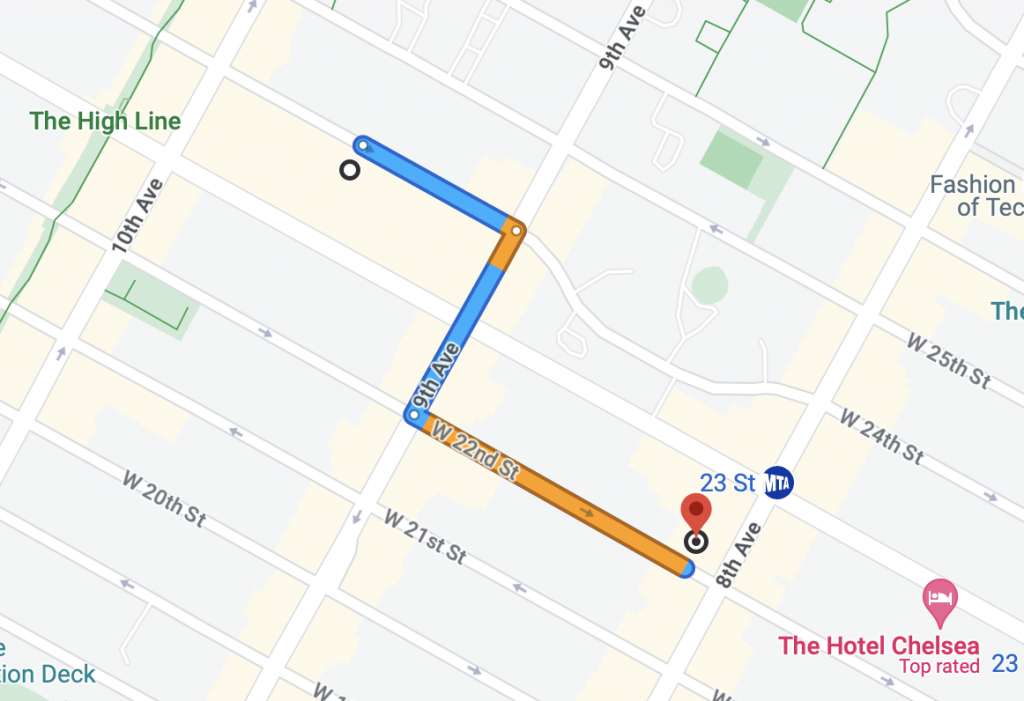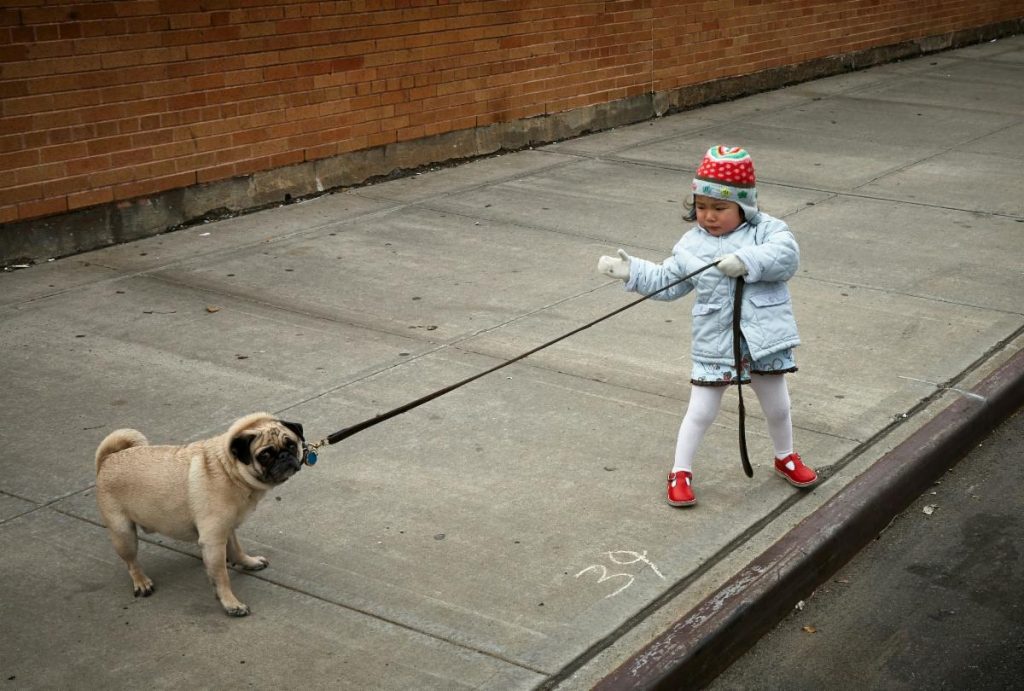Honestly, it wasn’t the six flights of stairs.
And although it was getting later than I wanted, it wasn’t entirely that I genuinely miss Vlad whenever I’m out and can’t wait to get home to him.
Nor was it that the day had gone sideways early on, and even though it was Saturday night I still had a little bit of work to do before bed.
Instead, the main reason that I did not travel from Christmas Party One for an 8-minute, 2 block walk to Christmas Party Two this year is that I wanted to avoid having a difficult conversation with its host.
(Let’s just call him “Lancelot,” which is––I hope obviously clear––NOT his real name).
As I told my friend in the Uber back to Bushwick, Lancelot has famously given this same party for quite literally decades; there will always be next year.
Unfortunately, however––and very sadly––I was proven dead wrong.

I can’t tell you how many times I’ve quoted this Rumi poem while teaching yoga classes.
(It even figures briefly in a scene in my novel Downward Dog.)
Although it was written over 8 centuries ago, like all great art it somehow speaks directly to the present moment:
Don’t Go Back To Sleep
The breeze at dawn has secrets to tell you.
Don’t go back to sleep.
You must ask for what you really want.
Don’t go back to sleep.
People are going back and forth
across the doorsill
where the two worlds touch.
The door is round and open.
Don’t go back to sleep.

One of the many great things about Lancelot––and that includes having a huge heart, a massive appetite for life, and a genuine love of all things social––was that he did, as Rumi advises, ask (loudly) for what he wanted.
Specifically, he really, really wanted to be a movie star.
Sadly, the asking was not enough.
He’d been pursuing acting with dogged persistence since college, yet he never landed a speaking part on a TV show or in a studio film.
His biggest success was 15 years ago, with two lines in a friend’s indie film as “Rooftop Party Guest #1.”

By far his greatest virtue––and equally his downfall––was his persistence.
If persistence had been enough, he would have climbed Everest several times over, and be spending his retirement years polishing his Oscars.
Instead, what blocked any and all successfrom arriving was one thing:
A steadfastrefusal to reinvent.

It feels like it might have been coined in the 1970s or 80s.
Personally, I think the first time I heard the word was in the 90s, by one of the early leaders in the field.
Honestly, I probably would have guessed that he’d even made it up but to my surprise, I’ve now learned that according to the Oxford English Dictionary, the word “coachable” was first used in the 1860s in the Birmingham Journal, a British Newspaper.
Coachable means, of course “capable of being easily taught and trained to do something better.”
What’s tricky though is defining what “capable” really means.
It’s not intelligence or aptitude, per se.
Instead, as countless articles on both business and sports coaching reveal, that capacity is a willingness to learn (especially via self-reflection) and the ability to be open to feedback, even and especially when it’s uncomfortable.
Sadly, despite his galactic level of persistence, the ability to accept feedback of any kind (other than unquestioning adoration) was something that Lancelot simply did not possess.

Again, it was a very long time ago.
In fact, it was right after writing and directing my first indie feature––one that like all such passion projects was both a labor of love and a Sisyphean nightmare––before Warner Brothers finally picked it up.
A new producer and I were developing our next project.
When the script was finally ready for the smallest reading with only the actors and us in attendance, I decided to cast Lancelot in a small role.
It would be the first time I’d watch him perform.
Really hoping for the best, I was saddened to see that he really wasn’t good.
In fact, in his two simple scenes he missed the mark by a long shot.
Much later, when he asked for feedback, I tried to ease in as gently as I could, but he couldn’t absorb anything but praise.
Instead, very dramatically, he quickly went from resentful to vaguely suicidal, storming out of the cocktail bar where we were hanging out with some cloudy pronouncements, leaving me to pay the bar tab and to keep texting to see if he was OK.
He was fine, of course, although when a few years later when he asked for my feedback on his one man show, for obvious reasons, I was more than a little trepidatious.

When cornered, I began by telling him I sincerely thought there was great stuff going on in it, lots of possibilities for success, and that he should definitely keep workshopping the material.
Please note: This was during the time I was teaching playwright Terrence McNally yoga 3 times a week.
In fact, I’d just attended a workshop / backers audition for his latest play.
At the time, between Terrence, the star (Chita Rivera), and the director (Graciela Daniele), they had an astonishing 17 Tony awards between them.
(Plus they won more afterwards; in fact, I can’t even count how many nominations as well as wins they had).
All of them were entirely open to intelligent feedback, eager to keep developing and perfecting their new work, open and hungry for ways to make things better.
Lancelot, however, was not.
As sweet a guy as he was, unlike those Broadway legends, he was entirely uncoachable.
After another performance attended by his friends, his solo show evaporated, never to be performed again.

Since he was so good-hearted and gregarious, many are reeling on the socials from the news of his sudden heart-failure this week.
Honestly, it felt like he would just be around forever, another Christmas party already in the works for 2024.
Ironically, prior to this, he’s been on my mind a lot this month.
Indeed, I flirted with the idea of gifting him a spot in the course and coaching program I’m launching this week.
Note: There are still a few places left––all the info and this month’s meditation are HERE.
And yet I knew that although he was the person who most needed to tell a new story, to open himself up to the Power of Reinvention HERE, that conversation just wasn’t possible.
Determined to stay stuck in a narrative that didn’t serve him, you could only wish him well and hope one day he’d see the light.

In Coleman Bark’s translation, there’s another short set of Rumi verses on the same page as Don’t Go Back to Sleep.
I think these two lines completely summarize both the great virtue that Lancelot possessed and his blindspot.
“Let the beauty we love be what we do.
There are hundreds of ways to kneel and kiss the ground.”
Lancelot nailed the first line.
He really was drawn towards what he loved and pursued it passionately.
He refused to give it up, defining himself by it and keeping at it for decades.
And yet, he never embraced the wisdom of Rumi’s second line, that “there are hundreds of ways to kneel and kiss the ground.”
Alas, he could only see one.

I have so many fond memories of Lancelot.
He was a true connector; in fact, he led me to several of the most important people in my life today.
And I’m seeing in the hundreds of social posts lots and lots of generous acts he offered many other people as well.
So many instances of support and other kindnesses––along with lots of laughs––are now being revealed.
Most importantly, I want to remember for myself––and also remind you––what I wished he’d learned…
That perseverance must be combined with flexibility, steadfastness with openness to reinvention.
In other words, we have to let Life coach us.
That’s why it’s worth repeating even in the same newsletter, Rumi’s words one more time so we can all fully embrace them:
“Let the beauty we love be what we do.
There are hundreds of ways to kneel and kiss the ground.”
Please … don’t go back to sleep.
Namaste for Now,


